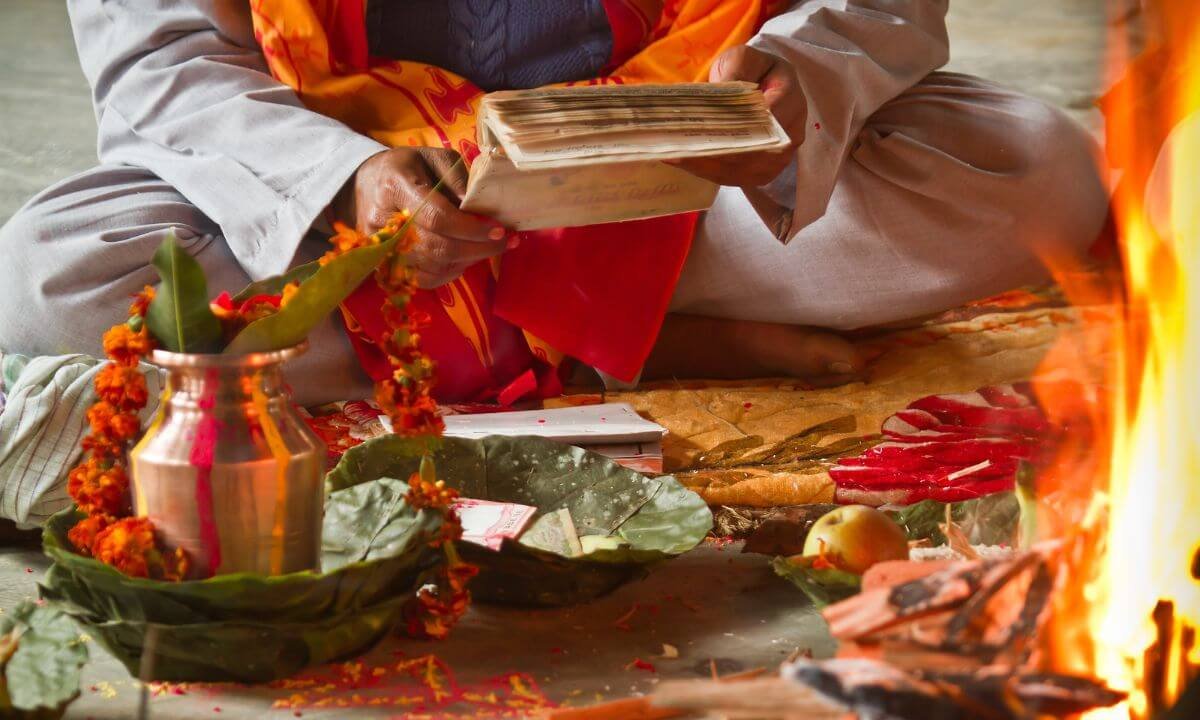At the heart of every ritual, prayer, and offering made at Kumbh Mela 2027 in Nashik, lies the quest for one sacred goal—Punya. Often translated as spiritual merit or virtuous reward, Punya is the invisible currency of the soul that devotees seek to accumulate through righteous action, selfless service, and spiritual discipline.
This blog explores the concept of Punya at Kumbh Mela, how it’s earned, and why it plays a central role in motivating millions to participate in the world’s largest religious gathering.
What Is Punya?
In Hindu philosophy, Punya refers to the positive karmic credit one earns through actions aligned with dharma (righteousness). It is believed that:
Punya leads to spiritual elevation and better circumstances in future births
- It reduces the weight of past sins (paap)
- It opens the path to moksha (liberation)
- It brings peace, clarity, and divine favor in this life
Punya can be earned throughout life—but certain events, like Kumbh Mela, offer a rare and multiplied opportunity to gather this spiritual merit.
Also read : Amrit Kalash: The Myth Behind Nashik’s Sacred Nectar
The Holy Dip: Most Powerful Act of Merit
The most iconic and powerful way to earn Punya at Kumbh Mela is through the holy dip (Snan) in the Godavari River.
It is believed that:
- Bathing in the river during the auspicious planetary alignments cleanses sins of many lifetimes
- The water transforms into Amrit, making the Snan an act of divine renewal
- Even thinking of or witnessing the dip, with reverence, earns one merit
This is why millions plan their pilgrimage around the Shahi Snan dates, considered the most punya-yielding moments of the Mela.
Other Ways to Earn Punya at Kumbh Mela
While the holy dip is central, there are many other spiritually potent ways to earn merit during the event:
1. Seva (Service)
- Distributing food, water, blankets, or medicines to fellow pilgrims
- Volunteering in camps or crowd management
- Helping the elderly or differently abled during the Snan
Every selfless act without expectation builds immeasurable punya.
2. Daan (Charity)
- Giving alms to ascetics and poor pilgrims
- Donating to temple trusts, gaushalas (cow shelters), or education programs
- Offering clothes or essentials to the needy
Daan during the Kumbh Mela is considered 108 times more effective than ordinary donations.
3. Satsang and Bhakti
- Attending spiritual discourses by saints and gurus
- Participating in bhajans, kirtans, or recitations of the Gita or Vedas
- Practicing japa (mantra chanting) and dhyana (meditation)
The collective vibration of devotion amplifies personal effort, earning abundant Punya.
4. Vrata (Vows and Fasting)
- Fasting before the dip
- Observing celibacy and silence
- Making personal sacrifices in honor of a spiritual goal
These acts discipline the ego, clearing the soul’s path to light.
Pilgrimage Itself as a Merit
In Hinduism, the act of undertaking a pilgrimage (Tirtha Yatra) is considered merit-worthy. When that journey is to the sacred Kumbh Mela, its merit is said to multiply exponentially.
Even those who are unable to bathe—the elderly, infirm, or distant family—can receive Punya by intention, prayer, or through a family member who takes the dip on their behalf.
Punya and the Cycle of Karma
Kumbh Mela reminds us that:
- We carry the weight of lifetimes of karma
- Every good act plants a seed of light
- Punya is not just for the afterlife—it improves our inner world now
By accumulating merit, we transform our destiny and influence future generations
It is an invitation to pause, cleanse, and consciously choose higher actions.
Conclusion
Punya at Kumbh Mela 2027 is more than a concept—it is the spiritual energy that infuses every sacred act, from a silent prayer to a shared meal. The Godavari River, the chants in the air, and the burning lamps in Akharas all beckon the soul toward light.
Whether you come to Nashik with questions, burdens, or faith—know that each step, each gesture of devotion, adds to your inner wealth. In a world obsessed with material gain, Kumbh Mela offers the one currency that truly matters: Punya.
So walk gently, give freely, serve humbly—and leave with the blessings that only such a sacred gathering can bestow.





